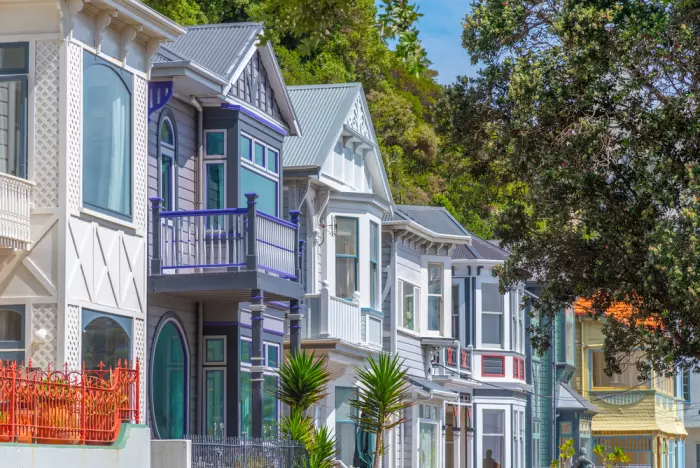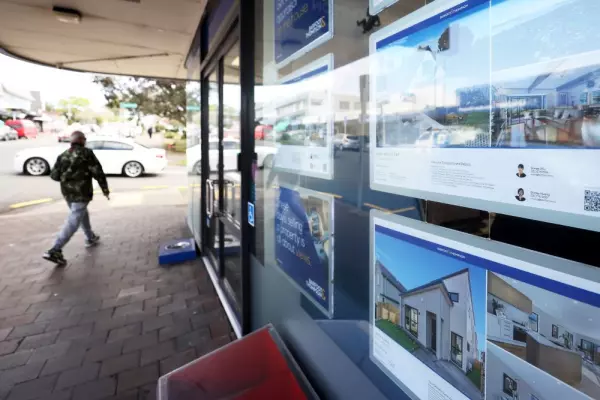Housing has been a great investment.
House prices in Auckland have increased by 8.1% per year on average since 1992, according to the Real Estate Institute. House prices across New Zealand have increased by 7.3% and ex Auckland by 6.8%. Some pundits remain all goosed up expecting the same going forward.
Housing wealth, net of debt, has soared 500% since 1998. Over that same period, net financial wealth from non-housing assets increased 226%.
The divergence is not so stark if you look at the past decade, but housing has still outshone aggregate wealth accumulation from non-housing assets.
Housing has risen from 40% of household net wealth to more than half. For a lot of people, housing is the dominant savings vehicle. The reverse equity mortgage looks set to go ballistic at some stage.
Four aspects of housing should be on people’s radar.
Interest rates
The first is the potential response to higher interest rates, which is open to conjecture because interest rates have only started to move and up.
It’s open to debate how far they will rise, and it is not just actual interest rates we need to keep an eye on if we are thinking about property prices over the long term.
The Reserve Bank pointed out in their November 2019 financial stability report that 55% of the increase in house prices between 2009 and 2019 could be put down to a fall in structural interest rates. That is a big chunk and highlights the channel.
Structural interest rates are things like the neutral official cash rate (OCR), the level at which the Reserve Bank neither has the foot on the accelerator or the brake. Think of them as investors' expectations of interest rates in the long term when making an investment.
Structural interest rates such as the neutral OCR have fallen from more than 5% to around 2%. Of course, the actual OCR and interest rates have fallen a lot more.
Attitudes to ownership
The second is society's sensitivity towards housing.
Declining homeownership rates, surging prices outstripping wages, the ridiculous time it now takes to save for a deposit, rising homelessness and rents, and 26,000 on the Ministry of Social Development's housing register have told the government to act.
According to the IPSOS Issues Monitor, 53% of people mention housing as an important issue facing NZ, twice any other issue. Housing is a concern for just 26% of Australians. Housing has been the top-rated issue in the Monitor for 11 of the past 14 releases.
Cue some good policy such as the $3.8 billion for the Housing Acceleration Fund, which funds necessary services, and $380 million for Māori housing solutions, and hopefully sensible changes to the Resource Management Act.
We also have poor policy initiatives too.
Some examples: the Kiwibuild far; the progressive removal of interest deductibility on an income-generating asset, talk of freezing rents.
The government will continue to act, potentially in good and poor ways.
Political risk is a factor for housing investors.
Jawboning
The third is the Reserve Bank, which is beating the unsustainable house price drum and acting.
The May financial stability report fired warning shots. Loan-to-value ratio restrictions have tightened again and some sort of debt serviceability or debt to income tool looks to be on the books for deployment.
This month's monetary policy statement showed that even if house price growth eases back to around 5% per year, the ratio of house prices to income will keep rising, hitting almost 12 by 2029.
That ratio was less than six in the early 2000s. The bank's central scenario has a modest fall in house prices, interest rates rising but remaining at low levels historically, and the ratio of house prices to income still around 10 in 2024.
While its mandate is to control inflation and employment, taming the economy when it is too hot invariably involves hitting housing as the market value of housing is four times the size of the economy.
Supply
Insufficient focus is also being paid to rapidly rising supply (44,000 building consents) relative to population growth of less than 35,000.
Housing is not up goose creek.
There are loads of opportunities. Inflation is rising, offsetting the potential effect of rising interest rates on some asset classes including housing. Real house prices might fall but not nominal house prices.
Population growth is going to be increasingly driven by Māori and Pacific people, who currently earn less, have lower homeownership rates, and have higher unemployment on average.
That will mean escalating demand for affordable housing.
Demographic shifts such as population ageing offer select opportunities for the right product.
The latest burst of house price inflation has created a lot of wealth that can be recycled into new properties.
However, land availability and the associated cost of development are massive restrictions on sustainable supply, with sections accounting for less than 9% of total property sales. What is bad for sustainable supply is potentially good for house prices.
Some smart goose tendering may still mean golden eggs.
But the days of property being the easy game look long gone.
For some investors, this means looking elsewhere.
This may seem like a wild-goose chase but it's inevitable.
The question is: where?















